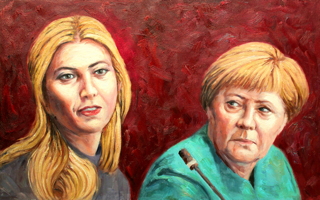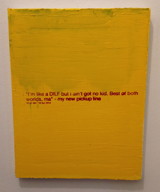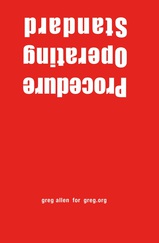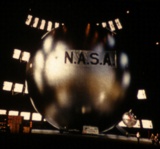Watch Matt Damon and Casey Affleck stagger, scramble and trudge through the desert in Gerry to forget the snow that you staggered, scrambled and trudged through to see it. If that reasoning's too circuitous for you, though, skip the movie; it's deeply self-referential and hermetic. It's the kind of film where half of the audience got there half an hour early, all eager, and half got there three minutes early, sure they'll be the only ones there. Even with an audience pre-sorted by reviewer warnings that Gerry could be a walkout movie, the Gerrys in front of us walked out.
To hear Gus Van Sant talk about it, making Gerry's the same directorial reboot that Steven Soderbergh got from Full Frontal, questioning his way to some essence, a filmmaking stripped of its accreted editing, language and genre conventions which result in product "as uniform as a McDonaldís hamburger."
Van Sant's"real-time filmmaking" (translation: wordless seven-minute takes) references Andrei Tarkovsky and Bela Tarr, whose films, you pretend you've seen (or whose films you've actually seen and fallen asleep in). But Gerry also reveals a far more popular inspiration, one that's as meaningless to film critics as Bela Tarr comments on American Idol: computer games.

Gerry's another example, then, of the language of videogames influencing film. Questions of character and motivation become as relevant for Gerry as they are for Mario ("But why is he trying to get past the monkey?"). It's a movie that suceeds on its own terms, and that creates an engrossing bridge between two wildly popular mediums.













